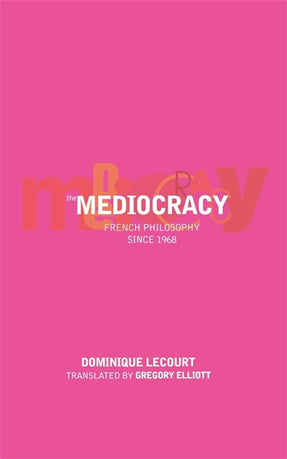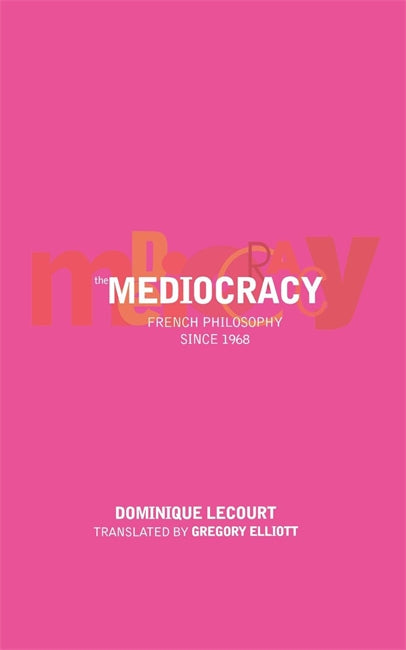
The Mediocracy:French Philosophy Since the Mid-1970s
-
20% offRegular price
$24.95Sale price $19.96Add to cart
Argues that a counter-revolution in intellectual life has seen the period of the "master thinkers" of the 1960s succeeded by an era of generalized mediocrity. The author discusses how contemporary French ideology is content to legitimize a globally hegemonic neo-liberalism.
Generating great controversy on its publication in France, The Mediocracy argues that a veritable counter-revolution in intellectual life has seen the period of the ‘master thinkers’ of the 1960s succeeded by an era of generalized mediocrity. Where Althusser or Lacan, Foucault or Derrida once held centre stage, today restorationist currents prevail in academia and on television. Fuelled by a complaisant media, contemporary French ideology seeks neither to interpret nor change the world, but is instead content to legitimise a globally hegemonic neo-liberalism.
Reviews
Serious students and professors of French history and culture between 1968 and 1998 will find this book fascinating ... It effectively recreates the intense intellectual atmosphere of Paris during the 30 years following the ‘events’ of 1968. Lecourt, a former student of Louis Althusser, draws on a rich tapestry of books, newspaper columns, magazine articles, TV broadcasts, and university lectures.
Dominique Lecourt ... [is] rightly concerned with the present state of French intellectual life, and fearful for its future.
Without a doubt, Lecourt’s observations on the French philosophical scene will appeal to fans and specialists eager for a glimpse of when ‘Derrida was not yet Derrida’, of mysterious Guy Debord and his ‘Situationist’ admirers, and tidbits from the ‘battle of petitions’ that once defined political struggle among French intellectuals. His insistence, against the French team of Luc Ferry and Alain Renault, that the protests of May ‘68 comprised quite diverse ideological elements and not just an ‘anti-humanist’ rigidity, deserves consideration.
